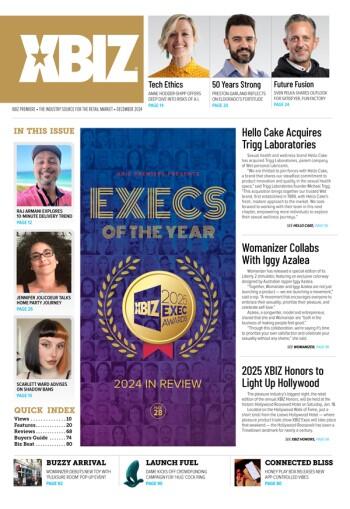You’re creating awesome content and doing everything you can think of to promote it, but still not getting the traction you were hoping for. Sound familiar? If so, you have probably found yourself thinking, “How do I get more people to actually see this stuff?”
Let me introduce you to the magic of search engine optimization, or SEO. It might sound techy and dull, but trust me: A few tweaks can make it a lot easier for your target audience to find your content. Whether you’re on OnlyFans, Fansly, or Patreon, optimizing your content for search engines is a game changer.
Make sure your titles and descriptions actually match your content. If people click, but then bounce because they’re not getting what they expected, it will hurt your SEO.
Let’s break it down in a simple, practical way so you can start getting your content in front of more fans.
What is SEO and Why Does it Matter?
SEO is all about making your content easier for search engines to find and show to people who might be looking for exactly what you’re offering. To play smart and get the most out of SEO, creators in the spicy content space just need to follow the rules and guidelines below.
Find Your Keywords
Keywords are your traffic magnets. Free tools like Google Keyword Planner will give you keyword ideas based on what people are already searching for. If you’re into cosplay, for example, you might notice that frequent searches include terms like “sexy cosplay outfits” or “cosplay OnlyFans.” Those are your golden keywords.
Focus on Long-Tail Keywords
Longer, more specific phrases can also help you connect with prospective viewers and fans. Think “amateur spicy cosplay videos” instead of just “cosplay” or “spicy content.” These “long-tail” keywords are also usually less competitive, meaning you have a better chance of showing up in the search results. Don’t just stick to one keyword or phrase; add variety! If you’re into boudoir photography, try using terms like “lingerie photoshoot” or “intimate photography” as well. Different people search differently, so cover your bases.
Optimize Your Profile and Content Titles
Once you’ve got those keywords, put them to work. Your bio and content descriptions are prime spots for this. Your bio should naturally include your main keywords. For example, “I’m a spicy content creator who loves doing sexy cosplay shoots and intimate lingerie pics.” No need to overdo it; just let it sound like you but incorporate those few important key phrases.
Give each post a strong, keyword-filled title, like “Steamy Cosplay Photoshoot in a Schoolgirl Outfit.” Not only is this good for SEO, but it’s also more likely to grab someone’s attention. If your platform lets you add alt text to images, use it. Alt text describes the image to search engines. Something like “curvy blonde in lace lingerie on a velvet couch” will help Google know what the image is — and potentially bring more fans your way.
Leverage Social Media for Extra Boosts
Social media platforms like Instagram, TikTok and X can also play a huge role in your SEO strategy. They might not directly affect your search engine rankings, but they definitely help drive traffic.
Keep your branding and keywords consistent across all your social media platforms. If you’re using “sexy cosplay videos” as a keyword, make sure it’s in your bios and posts wherever they are. This keeps things cohesive and helps you gain more new fans. Regularly drop links to your main content sites in your social posts. You don’t have to be spammy about it — just add a call to action like, “Check out my latest spicy cosplay video, you know where!” People need those easy, clickable directions.
Quality Content Is King
Let’s talk about the content itself. Search engines care about quality, so the better your content, the more time people spend on it — and that helps boost your rankings. You don’t have to have pro gear, but clear, well-lit photos and videos go a long way. Take the time to shoot a handful of catchy photos to make strong thumbnails. Good visuals attract eyeballs better and keep fans around longer, and that’s great for SEO. Finally, stick to a schedule. Whether it’s daily, weekly or whatever pace you can handle, consistency tells both search engines and fans that you’re active.
Build Backlinks
Backlinks are links from other websites to your content, and they’re a huge ranking factor for search engines. The more credible sites link to your content, the more trustworthy you are to Google. How do you get these? Glad you asked!
Shoutouts and collabs with other creators not only get you in front of new audiences, but also get you some valuable SEO juice if they link to your profile. You can also jump into conversations on forums or comment on niche blogs where your content would be relevant. Leave thoughtful comments, participate in discussions and don’t forget to drop your link where it makes sense.
Avoid These SEO Mistakes
Lastly, let’s avoid a few common SEO mistakes that can trip you up:
- Keyword Stuffing Is a No-Go: Don’t try to jam a bunch of keywords into every sentence. It will make your content sound awkward, and search engines will penalize you for it.
- Be Honest With Your Descriptions: Make sure your titles and descriptions actually match your content. If people click, but then bounce because they’re not getting what they expected, it will hurt your SEO.
- Respect Platform Guidelines: Make sure to follow platform rules about what you can post. The last thing you need is for your profile to be flagged or removed because you didn’t read the fine print.
SEO might sound like a lot to take on, but it’s really just about being smart with how you present yourself and your content. With a little keyword research, some good content and consistency, you can make it easier for more people to find you. Remember: SEO is a long game, but once you start applying these tips, you’ll be setting yourself up for long-term success.
Megan Stokes is co-founder of NMG Management, specializing in content distribution and management. As a veteran of the adult industry, she enjoys sharing the knowledge and data she has collected over time with those who seek her help.









